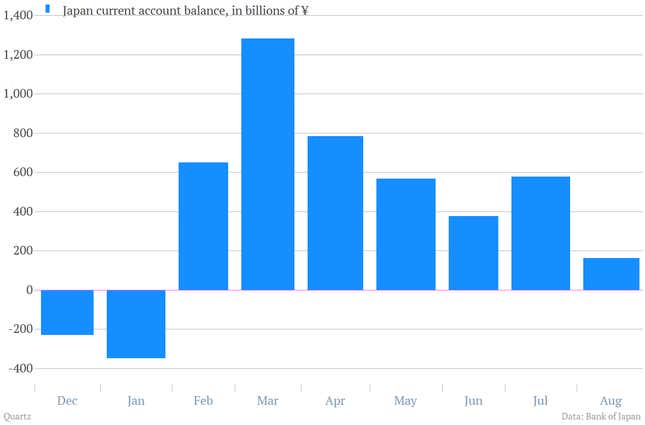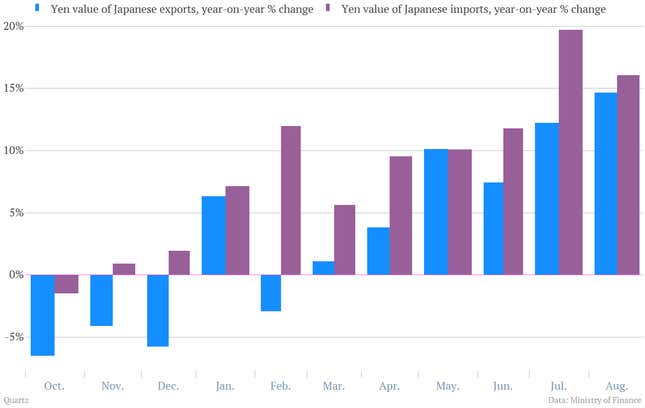In many ways, Abenomics has been tremendously successful. A weak yen has helped Japan’s export sector. And the country shows real signs of finally winning its battle with deflation. But there’s a hitch: Japan’s effort to weaken the yen also means that energy imports are getting a lot more expensive in yen terms. (Japan depends on imports for 90% of its energy.)

It was the rising energy costs that added to the surprising tumble in Japan’s current account surplus in August, according to numbers released overnight. There was a record low surplus for August, according to Bloomberg.
One of the broadest measures of trade, the current account balance, is essentially the international balance of payments into and out of a country. The short lesson of today’s trade numbers out of Japan is that exports are up, but imports (mostly related to energy) are up more.
